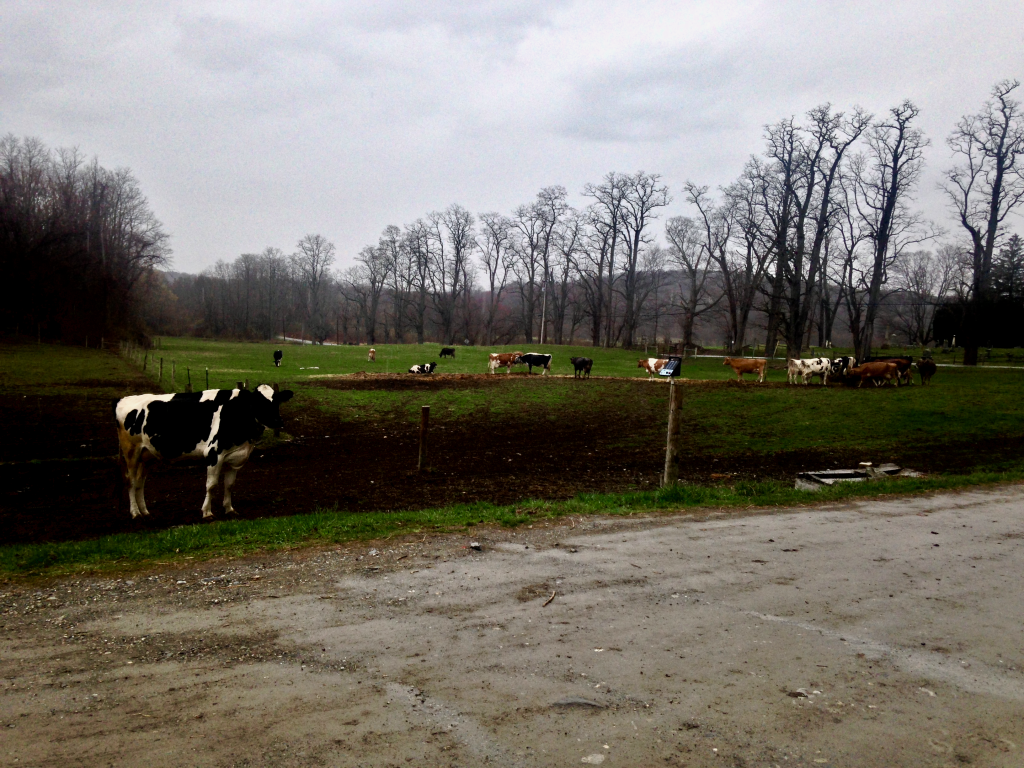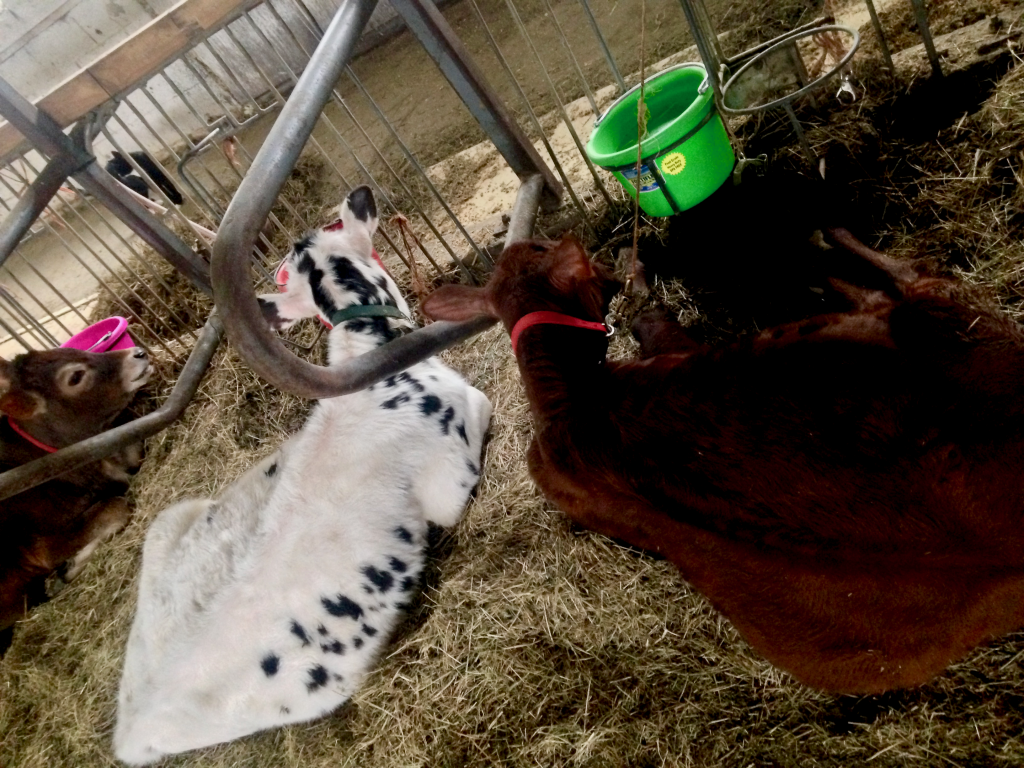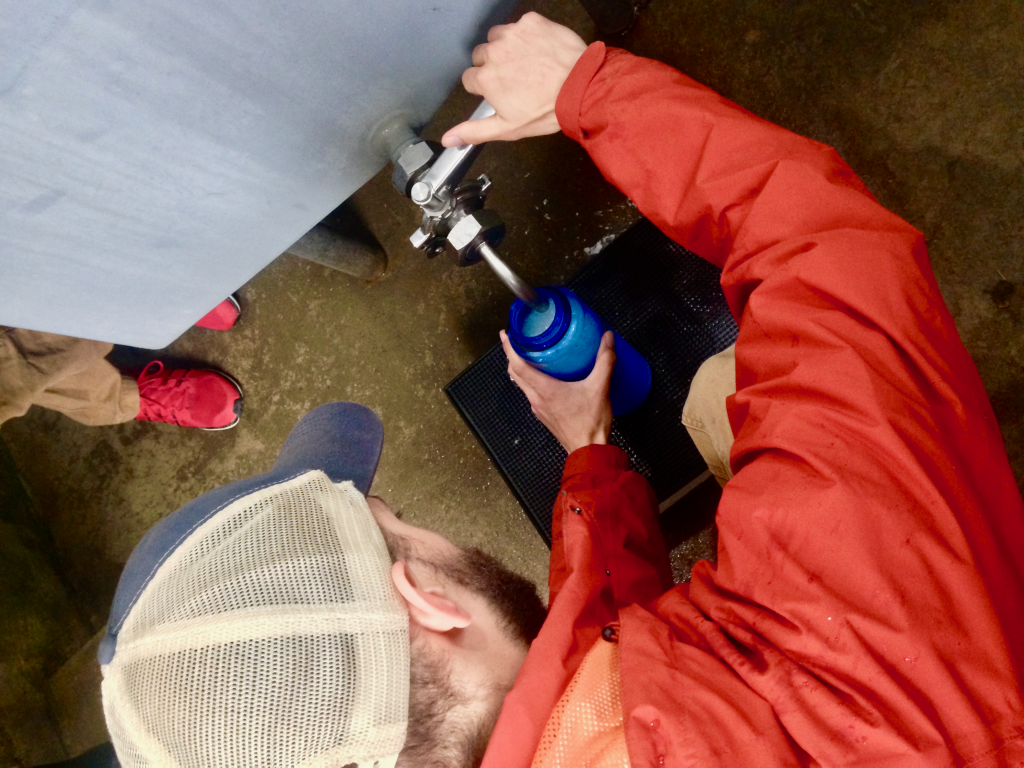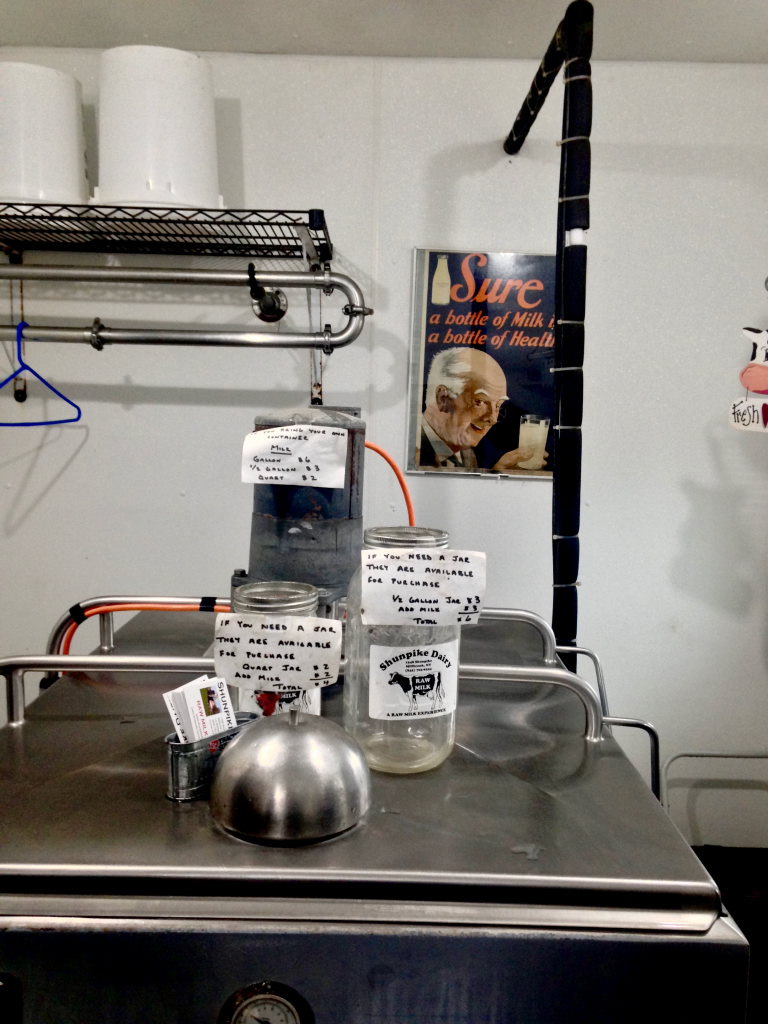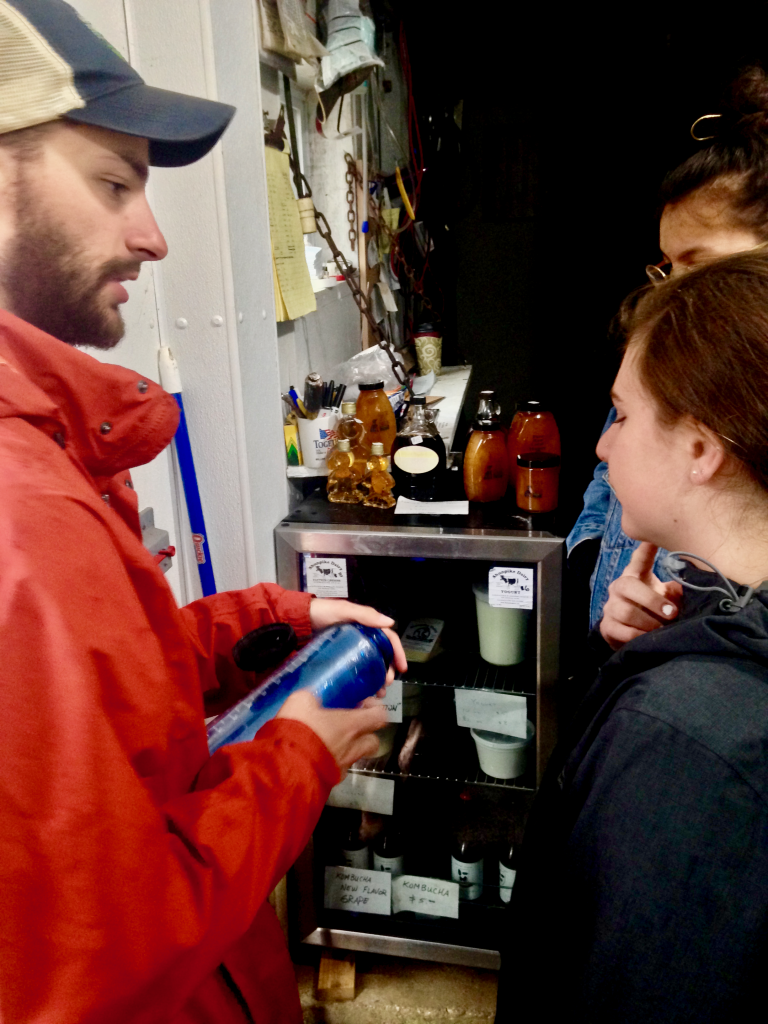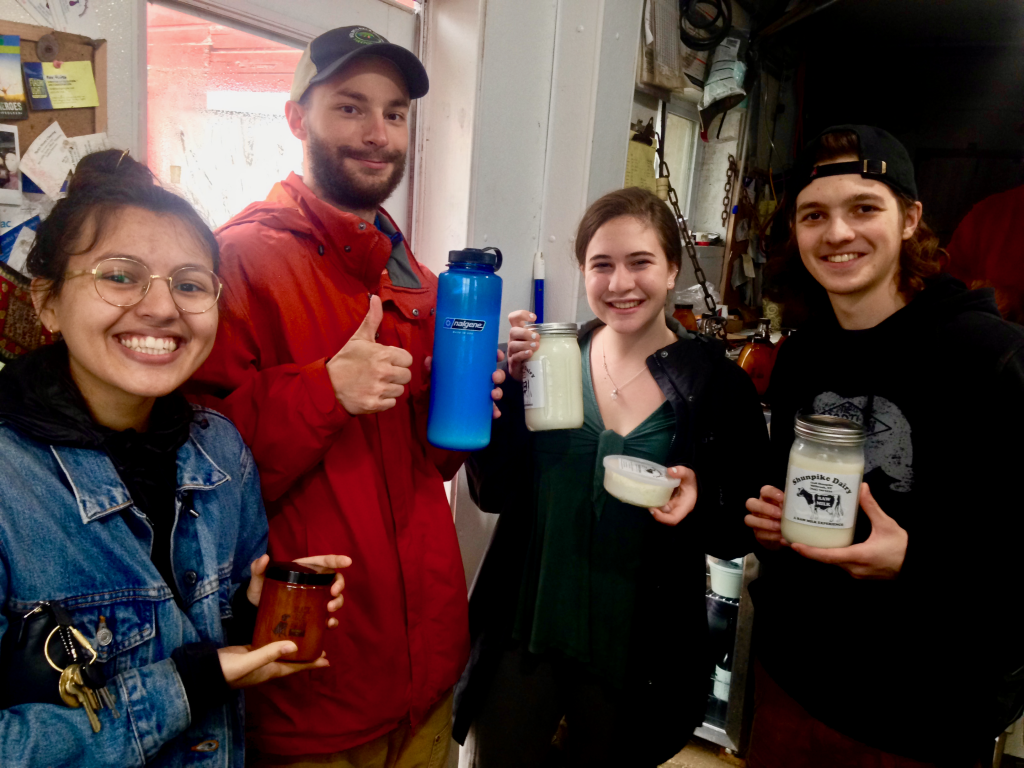On Friday, April 28th, I rode along with the inimitable Ethan Pierce and several members of Vassar’s Outing Club, on what he called a farm crawl. It began with Shunpike Dairy, included a stop at Sprout Creek, and concluded at the Arlington Dunkin’ Donuts. Of these stops, Shunpike was of interest in that our class, Field Experiences in the Hudson Valley, had never visited before, and in that Shunpike, a family dairy farm in Millbrook, offers raw milk. The product is featured prominently on the farm’s sign, and is housed in a cooling tank that occupies approximately half of the farm’s store, immediately adjacent to the dairy barn, which also sells cheese, eggs, honey, maple syrup, and mason jars in which to store the raw milk, should one have neglected to bring a vessel. After the lot of us had crowded into the store, Ethan crouched, placing his reusable water bottle under the milk spigot, and filled it. The store operated under the honor system; while Shunpike’s proprietor forked hay into his cows’ feedpens, customers were instructed to pay by leaving money in another mason jar on the counter.
Ethan stood and admired the raw milk he’d collected; “What makes it ‘raw?’” I asked. “It’s unpasteurized and non-homogenized,” he informed me. “Straight from the cow to the cooler.” The cows, whom we had met earlier, were entirely uncowed by the presence of strangers in their vicinity. Shunpike is open to the public seven days a week, and the cows—Ayshires, Brown Swisses, Jerseys, Guernseys, Linebackers, and Holsteins—are the main attraction; visitors can observe milkings at 5:00 AM and 6:00 PM. Another farmcrawler bought a mason jar of milk, and after we had left asked me, holding it aloft, whether the milk and jar package deal was an example of a value-added product. Ethan had mentioned the term earlier, in explaining that he and I shared a class and what, exactly, that class was about. I told her no, I didn’t think so—”actually, come to think of it, I think the fact that it’s a completely unprocessed animal product makes it about as far as you can get from ‘value-added.’”
The sale of raw milk is banned in fifteen US states. New York does not number among them, but retail sale of the product is outlawed; it’s strictly a direct-to-consumer affair, and even then farms must obtain a certification from the State Department of Agriculture & Markets. In order to get certified, Shunpike Dairy had to submit a sample to the Department of Milk Control & Dairy Services that was cleared for six species of bacteria (Salmonella enterica, Listeria monocytogenes, a Campylobacter, two strains of E. coli, and Staphylococcus aureus) and several other pathogens, after which it was declared safe for human consumption and, in 2010, the Dairy was issued a license to sell. These pathogens are those that the pasteurization process, the superheating of milk, was designed to preclude in the first place; the fact that the raw stuff is unhomogenized simply means that its surface is liable to form a film of accumulated cream.
The CDC continues to warn consumers of the dangers of raw milk. Even so, there is a thriving black market for the mass sale of raw milk in New York State. I confess: when I had a sip from Ethan’s bottle, I couldn’t tell it from the stuff that comes in cartons.
